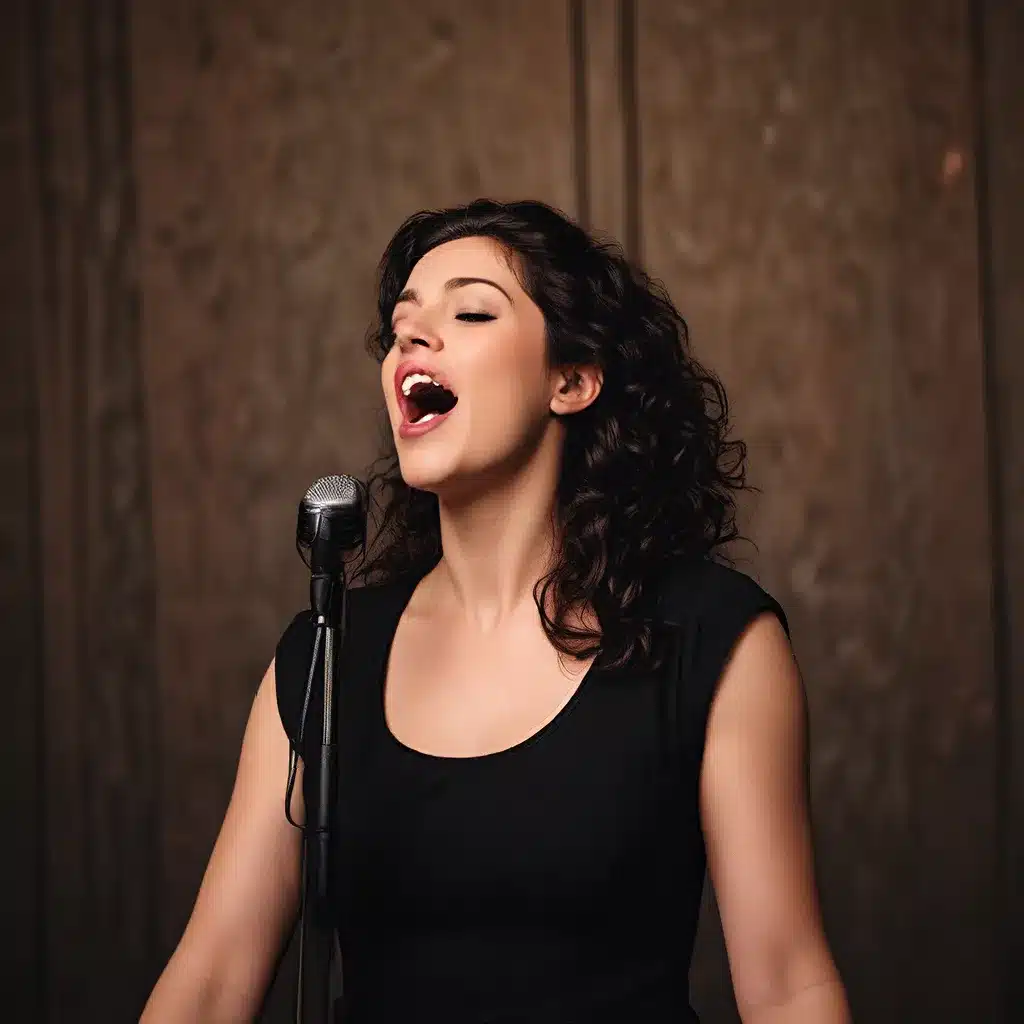
Innovation and the Art of Singing
As a lifelong student and lover of musical theater, I’ve always been fascinated by the incredible vocal artistry that pushes the boundaries of what’s possible on stage. From the stunning bel canto stylings of opera-trained sopranos to the gritty, soul-stirring belting of powerhouse Broadway divas, the human voice is truly a marvel to behold.
But in an age where technology and innovation are transforming nearly every aspect of the performing arts, I can’t help but wonder – what does the future hold for the art of singing in musical theater? Will we see a new era of “vocal innovation” that redefines how we experience and engage with the music we love?
Embracing the Avant-Garde
If there’s one thing I’ve learned from my research, it’s that true innovators in the world of musical theater singing are not afraid to take risks and challenge the status quo. Take the example of the “Black Box” production – a groundbreaking stage show that blended live vocals, recorded music, and cutting-edge sound design to create an immersive, high-tech theatrical experience.
As the review describes, the show’s use of mandatory “snug-fitting cordless headphones” allowed the audience to be fully enveloped in a “mashup of live vocals, sound effects, and recorded tracks” – pushing the boundaries of what we typically expect from a live musical performance. And despite the technical complexities involved, the review praises the show’s lead actor, Michael Cormick, for his “compelling” and “strong” vocal performance, which managed to bridge the gap between the public experience and the intimate, headphone-driven soundscape.
The Voice as Instrument
Of course, avant-garde experimentation is nothing new in the world of musical theater. Legendary performer and composer Meredith Monk has been pioneering the use of the human voice as a malleable, multidimensional “instrument” for over 45 years. In her work, Monk seamlessly blends elements of voice, dance, theater, and film, creating a truly interdisciplinary and boundary-pushing art form.
As Monk herself explains, her approach to innovation is not about “making something new for the sake of making something new,” but rather, “going back to something very, very ancient and doing it in a fresh way.” By drawing inspiration from the “origins of utterance, gesture, and communication,” Monk has developed a unique vocal style that defies easy categorization, incorporating elements of chanting, breathing, and even primal vocalizations.
The Collaborative Spirit
But what I find most remarkable about vocal innovators like Meredith Monk is their collaborative spirit and their willingness to embrace a certain degree of “loneliness” in their creative pursuits. As Monk herself acknowledges, the path of the true innovator can be a solitary one, as they forge their own way without the comfort of established precedents or a clear roadmap.
Yet, Monk also speaks of the deep sense of “family” and “common language” she’s cultivated with her long-time ensemble of performers, suggesting that even the most groundbreaking artists need a supportive community to nurture their vision. It’s a delicate balance, to be sure – one that requires discipline, vulnerability, and a deep well of creative curiosity.
Redefining the Musical Theater Experience
And it’s this spirit of curiosity and a willingness to embrace the unknown that I believe will ultimately drive the next wave of vocal innovation in musical theater. As audiences continue to crave more immersive, technology-driven experiences, we may see a proliferation of productions that follow in the footsteps of “Black Box” – blending live and pre-recorded elements to create a truly unique and immersive soundscape.
At the Musical Theater Center, we’re already exploring ways to push the boundaries of what’s possible with the human voice. From incorporating cutting-edge vocal processing techniques to experimenting with interactive, audience-driven performances, we’re committed to fostering a culture of innovation and creativity that will shape the future of this art form.
After all, as Meredith Monk so eloquently reminds us, “the moments of discovery are what really keep me going in my life.” And isn’t that the essence of what makes musical theater so captivating and inspiring – the thrill of discovering something new, of being transported to a world beyond our own?
So, let’s embrace the spirit of innovation, let’s celebrate the incredible versatility and power of the human voice, and let’s see what wonders the future of musical theater singing has in store.

